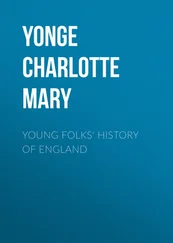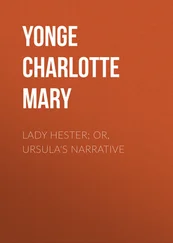Charlotte Yonge - Cameos from English History, from Rollo to Edward II
Здесь есть возможность читать онлайн «Charlotte Yonge - Cameos from English History, from Rollo to Edward II» — ознакомительный отрывок электронной книги совершенно бесплатно, а после прочтения отрывка купить полную версию. В некоторых случаях можно слушать аудио, скачать через торрент в формате fb2 и присутствует краткое содержание. Жанр: foreign_humor, Юмористические книги, literature_19, foreign_antique, на английском языке. Описание произведения, (предисловие) а так же отзывы посетителей доступны на портале библиотеки ЛибКат.
- Название:Cameos from English History, from Rollo to Edward II
- Автор:
- Жанр:
- Год:неизвестен
- ISBN:нет данных
- Рейтинг книги:4 / 5. Голосов: 1
-
Избранное:Добавить в избранное
- Отзывы:
-
Ваша оценка:
- 80
- 1
- 2
- 3
- 4
- 5
Cameos from English History, from Rollo to Edward II: краткое содержание, описание и аннотация
Предлагаем к чтению аннотацию, описание, краткое содержание или предисловие (зависит от того, что написал сам автор книги «Cameos from English History, from Rollo to Edward II»). Если вы не нашли необходимую информацию о книге — напишите в комментариях, мы постараемся отыскать её.
Cameos from English History, from Rollo to Edward II — читать онлайн ознакомительный отрывок
Ниже представлен текст книги, разбитый по страницам. Система сохранения места последней прочитанной страницы, позволяет с удобством читать онлайн бесплатно книгу «Cameos from English History, from Rollo to Edward II», без необходимости каждый раз заново искать на чём Вы остановились. Поставьте закладку, и сможете в любой момент перейти на страницу, на которой закончили чтение.
Интервал:
Закладка:
Waltheof, who was innocent of all save being present at the unfortunate feast, might have been spared but for the wickedness of his wife, Judith, William’s niece, who had been married to him when it was her uncle’s policy to conciliate the Saxons. She hated and despised the Saxon churl given her for a lord, kind, generous, and pious though he was; and having set her affections on a young Norman, herself became the accuser of her husband. Waltheof succeeded in disproving the calumnies, and the best and wisest Normans spoke in his favor; but the spite of Ivo Taillebois, and the hatred of his wife, prevailed, and he was sentenced to die.
He was executed at Winchester, where, lest the inhabitants should attempt a rescue, he was led out, early in the morning, to St. Giles’s hill, outside the walls. He wore the robes of an earl, and gave them to the priests who attended him, and to the poor people who followed him. When he came to the spot he knelt down to pray, begging the soldiers to wait till he had said the Lord’s Prayer; but he had only come to “Lead us not into temptation,” when one of them severed his head from his body with one blow of a sword.
His body was hastily thrown into a hole; but the Saxons, who loved him greatly, disinterred it in secret, and contrived to carry it all the way to Croyland, where it was buried with due honors, and we may think of Hereward le Wake attending the funeral of the son of the stalwart old Siward Biorn.
As to the perfidious Judith, she reaped the reward of her crimes; she was not permitted to marry her Norman lover, and he was stripped of all the wealth she expected as the widow of Waltbeof. This was secured to her infant daughter, and was so considerable, that at one time William thought the little Matilda of Huntingdon a fit match for his son Robert; but Robert despised the Saxon blood, and made this project an excuse for one of his rebellions. Matilda was, however, a royal bride, since her hand was given to David I. of Scotland, the representative of the old race of Cerdic, and a most excellent prince, with whom she was much happier than she could well have: been with the unstable Robert Courtheuse.
CAMEO IX. THE LAST SAXON BISHOP. (1008-1095.)
Kings of England .
1066. William I.
1087. William II.
The last saint of the Anglo-Saxon Church, the Bishop who lived from the days of Edward the Confessor, to the evil times of the Red King, was Wulstan of Worcester, a homely old man, of plain English character, and of great piety. The quiet, even tenor of his life is truly like a “soft green isle” in the midst of the turbulent storms and tempests of the Norman Conquest.
Wulstan was born at Long Itchington, a village in Warwickshire, in the time of Ethelred the Unready. He was the son of the Thane Athelstan, and was educated in the monasteries of Evesham and Peterborough. When he had been trained in such learning as these could afford, he came home for a few years, and entered into the sports and occupations of the noble youths of the time, without parting with the piety and purity of his conventual life, and steadily resisting temptation.
His parents were grown old, and having become impoverished, perhaps by the exactions perpetrated either by the Danes, or to bribe them away, retired from the world, and entered convents at Worcester. Wulstan, wishing to devote himself to the Church, sought the service of the Bishop, who ordained him to the priesthood.
He lived, though a secular priest, with monastic strictness, and in time obtained permission from the Bishop to become a monk in the convent, where he continued for twenty-five years, and at length became Prior of the Convent. The Prior was the person next in office to the Abbot, and governed the monastery in his absence; and in some religious orders, where there was no Abbot, the Prior was the superior.
Wulstan’s habits in the convent show us what the devotional life of that time was. Each day he bent the knee at each verse of the seven Penitential Psalms, and the same at the 119th Psalm at night. He would lock himself into the church, and pray aloud with tears and cries, and at night he would often retire into some solitary spot, the graveyard, or lonely village church, to pray and meditate. His bed was the church floor, or a narrow board, and stern were his habits of fasting and mortification; but all the time he was full of activity in the cause of the poor, and, finishing his devotions early in the morning, gave up the whole day to attend to the common people, sitting at the church door to listen to, and redress, as far as in him lay, the grievances that they brought him—at any rate, to console and advise. The rude, secular country clergy, at that time, it may be feared, a corrupt, untaught race, had in great measure ceased to instruct or exhort their flocks, and even refund baptism without payment. He did his best to remedy these abuses, and from all parts of the country children were brought to the good Prior for baptism. Every Sunday, too, he preached, and the Worcestershire people flocked from all sides to hear his plain, forcible language, though he never failed to rebuke them sharply for their most prevalent sins.
The fame of the holy Prior of Worcester began to spread, and on one occasion Earl Harold himself came thirty miles out of his way to confess his sins to him and desire his prayers.
About the year 1062, two Roman Cardinals came to Worcester with Aldred, who had just been translated from that see to the Archbishopric of York. They spent the whole of Lent in Wulstan’s monastery; and when, at Easter, they returned to the court of Edward the Confessor, they recommended him for the Bishop to succeed Aldred; and Aldred himself, Archbishop Stigand, and Harold, all concurred in the same advice. The people and clergy of Worcester with one voice chose the good Prior Wulstan; his election was confirmed by the king, and he received the appointment. He long struggled against it, protesting that he would rather lose his head than be made a Bishop; but he was persuaded at last by an old hermit, who rebuked him for his resistance as for a sin. He received the pastoral staff from King Edward, and was consecrated by his former Bishop, Aldred.
As a Bishop he was more active than ever, constantly riding from place to place to visit the different towns and villages; and, as he went, repeating the Psalms and Litany, his attendant priests making the responses; while his chamberlain carried a purse, from which every one who asked alms was sure to be supplied. He never passed a church without praying in it, and never reached his resting-place for the night without paying his first visit to the church. Wherever he went, crowds of every rank poured out to meet him, and he never sent them away without the full Church service, and a sermon; nay, more—each poor serf might come to him, pour out his troubles, whether temporal, or whether his heart had been touched by the good words he had heard. Above all, Wulstan delighted in giving his blessing in Confirmation, and would go on from morning till night without food, till all his clergy were worn out, though he seemed to know no weariness.
His clergy seem to have had much of the sluggishness of the Saxon, and were often impatient of a temper, both of devotion and energy, so much beyond them. If one was absent from the night service, the Bishop would take no notice till it was over; but when all the others were gone back to bed, he would wake the defaulter, and make him go through the service with no companion but himself, making the responses. They did not like him to put them out, as he often did on their journeys, while going through the Psalms, by dwelling on the “prayer-verses;” and most especially did they dislike his leading them to church, whatever season or weather it might be, to chant matins before it was light. Once, at Marlow, when it was a long way to church, very muddy, and with a cold rain falling, one of his clergy, in hopes of making him turn back, led him into the worst part of the swamp, where he sunk up to his knees in mud, and lost his shoe; but he took no notice until, after the service was over, he had returned to his lodgings, half dead with cold, and then, instead of expressing any anger, he only ordered search to be made for the shoe.
Читать дальшеИнтервал:
Закладка:
Похожие книги на «Cameos from English History, from Rollo to Edward II»
Представляем Вашему вниманию похожие книги на «Cameos from English History, from Rollo to Edward II» списком для выбора. Мы отобрали схожую по названию и смыслу литературу в надежде предоставить читателям больше вариантов отыскать новые, интересные, ещё непрочитанные произведения.
Обсуждение, отзывы о книге «Cameos from English History, from Rollo to Edward II» и просто собственные мнения читателей. Оставьте ваши комментарии, напишите, что Вы думаете о произведении, его смысле или главных героях. Укажите что конкретно понравилось, а что нет, и почему Вы так считаете.












